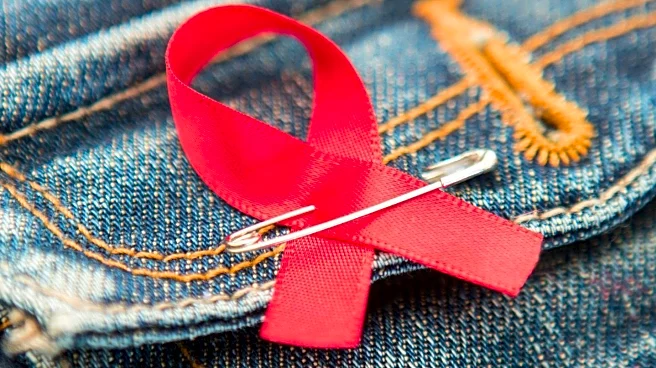What's Happening?
The Department of Health in Northern Ireland has announced the rollout of a new HIV prevention injection, cabotegravir (CAB-LA), which is administered every two months. This injection serves as an alternative to the daily HIV prevention pill known as PrEP.
The decision follows approval in England, Wales, and Scotland, and has been welcomed by campaigners and LGBT charities. The Rainbow Project's chief executive, Scott Cuthbertson, described the move as a 'game-changer' for making HIV prevention more accessible. The injection is seen as a more convenient and discreet option compared to oral PrEP, which can be difficult to take regularly due to various personal circumstances.
Why It's Important?
The introduction of cabotegravir injections in Northern Ireland is significant as it expands the options for HIV prevention, potentially increasing accessibility for those who find daily pills impractical. This development aligns with the broader UK goal of ending new HIV cases by 2030. By offering a more discreet and less frequent method of prevention, the injection could help reduce stigma and barriers associated with HIV prevention. This could lead to a decrease in new HIV infections, benefiting public health and reducing healthcare costs associated with treating HIV.
What's Next?
The Department of Health is in the process of formally endorsing the guidance from the National Institute for Health and Care Excellence (NICE) to make the injections available to eligible patients. While the exact timeline for availability is not yet known, the rollout is expected to proceed following the completion of this endorsement process. Stakeholders, including healthcare providers and LGBT advocacy groups, are likely to monitor the implementation closely to ensure the injections reach those in need.
Beyond the Headlines
The rollout of cabotegravir injections may also influence public perceptions of HIV prevention, potentially reducing stigma associated with the disease. As more people opt for the injection, it could lead to increased awareness and education about HIV prevention methods, fostering a more informed and supportive community environment.

















